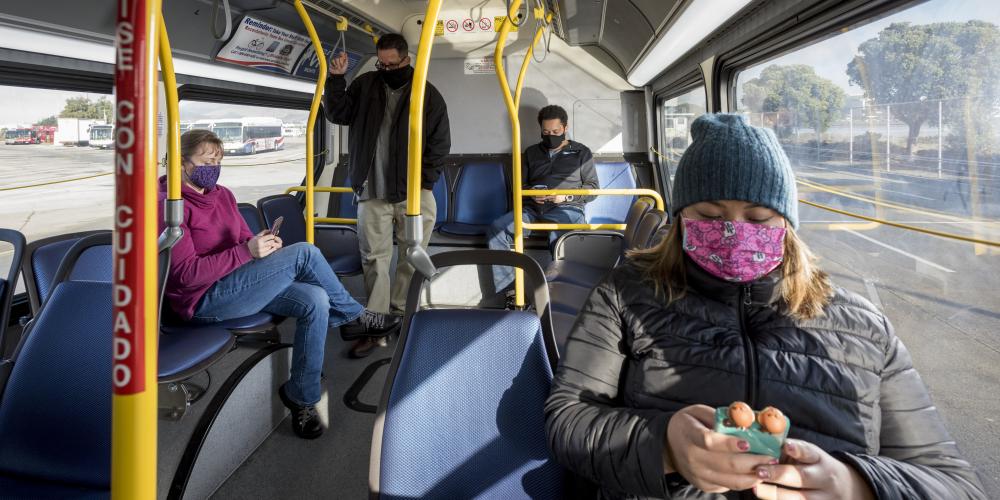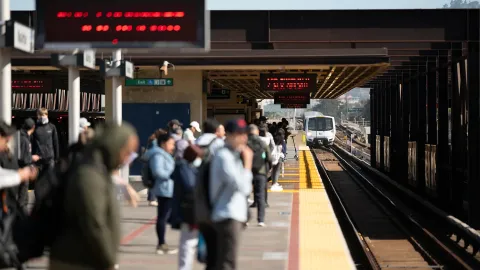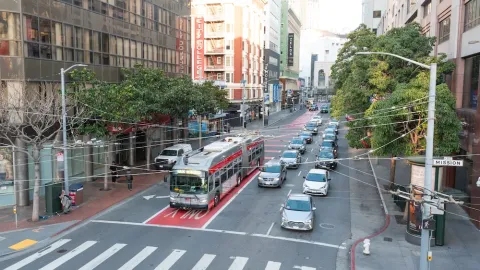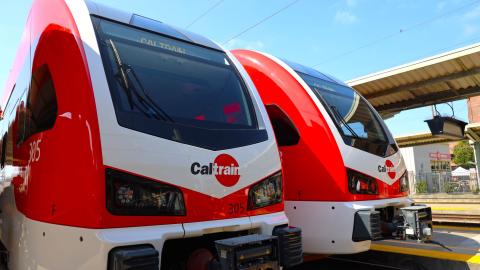
The Metropolitan Transportation Commission Wednesday voted unanimously to endorse a suite of recommendations to the Legislature for crafting a new state budget that provides operating funding on a multi-year basis to avert service cuts among hard-pressed transit agencies facing major budget deficits due to slow ridership recovery.
In supporting a list of potential revenue sources to stave off major cuts to transit service and help transform transit to attract new riders, the Commission urged staff to include in its advocacy strong accountability measures to help ensure transit agencies deliver on the promise of the Bay Area’s Transit Transformation Action Plan.
The Commission’s action endorsed a menu of potential funding shifts and fee increases over five years giving legislators $7.4 billion worth of options to address a statewide “fiscal cliff” estimated by the California Transit Association to total $6 billion statewide. Bay Area transit agencies alone face an estimated $2.5 billion five-year operating shortfall, with Muni and BART accounting for the largest shares of this revenue gap.
Recommendations approved by the Commission Wednesday include:
- Cap and Trade, $2.5 billion: Shift discretionary Cap and Trade proceeds above and beyond what the Governor has proposed in his January budget.
- Federal Highway Funds, $2.3 billion: This option would involve a temporary five-year redirection of the growth in new federal highway funds from the Infrastructure Investment and Jobs Act (IIJA) that would otherwise go towards state highway repairs but have not yet been assigned to specific projects. The proposal would still allow a 19% increase in major highway repairs relative to pre-IIJA levels.
- Diesel Sales Tax, $1.3 billion: Shift 100% of funds to transit. About 80% of this tax already is dedicated to transit.
- Transportation Improvement Fee, $1.3 billion: A proposed five-year increase in a vehicle registration surcharge, with cars valued at less than $5,000 (some 40% of all registered vehicles in California) exempt from the temporary fee hike and a maximum increase of $30 per year for vehicles valued over $60,000.
MTC since last fall has been working with transit agencies, business and labor groups, environmental and transit rider advocacy organizations, and others to urge the Legislature to invest in transit agencies’ recovery from the COVID-19 pandemic. The Commission’s advocacy principles include:
- Meet critical service needs for agencies with demonstrated operating deficits caused by reduced ridership and for improvements to enhance the rider experience;
- ‘Survive’ funds should be based on need, while ‘Thrive’ dollars could be distributed by formula or competitively; and
- ‘Thrive’ funds may be front-loaded beginning in the fiscal 2023-24 budget because investments to attract more riders may reduce transit agencies’ operating deficits in later years, and the agencies’ ‘Survive” needs are expected to jump sharply from 2023-24 to 2024-25 and then hold largely steady from 2025-26 through 2027-28.



Submit your comment
In order to receive a reply to your comment, please provide an email address.